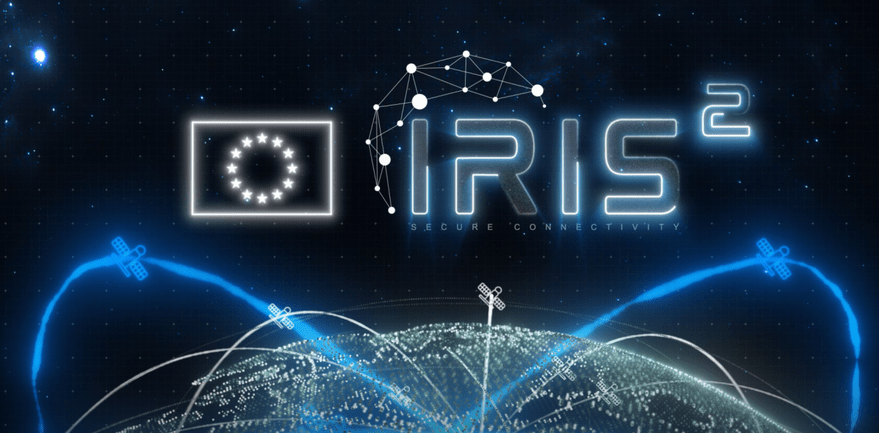A report from Italy’s Interministerial Committee for Space and Aerospace Policy (COMINT) has raised important questions regarding the country’s involvement in the European Union’s IRIS2 program, a planned public-private communication constellation for low and medium Earth orbit. The report notes that while Italy is considering its participation in IRIS2, SpaceX has offered to provide Starlink services to the country. This situation places Italy at a strategic crossroads regarding its telecommunications future.
Italy must decide whether to proceed with its own national low-Earth orbit dual-use telecommunications constellation, currently known as MERCURIO, or to deepen its reliance on Starlink while awaiting the rollout of IRIS2. The leaked document, which was obtained by SpaceNews and first reported by the Italian newspaper Il Fatto Quotidiano, serves as a general summary of the state of the Italian space sector as of 2024. Although it does not explicitly state that Italy will prioritize Starlink, the timing of these discussions has raised significant interest.
In January 2025, Bloomberg reported that the Italian government was in negotiations with SpaceX to potentially secure Starlink services for up to $1.6 billion over an unspecified period. While the Italian government, based in Palazzo Chigi, denied that any contracts had been signed, officials acknowledged ongoing discussions with SpaceX.
Strategic Considerations and National Interests
In March 2024, COMINT and the Italian Space Agency (ASI) initiated a feasibility study for the MERCURIO project. While details regarding the number of satellites and the project’s budget remain undisclosed, the initiative has progressed from Phase 1 to Phase 2, although no results from the initial phase have been publicly released. The leaked report acknowledges SpaceX’s offer for Starlink services and highlights Starlink’s “clear superiority over IRIS2,” noting that the latter is not yet operational and is less ambitious in scope.
Furthermore, the document points out that “Italian industry appears to be underrepresented compared to its potential within IRIS2,” indicating a need for a more balanced approach between national ambitions and European industrial participation. The primary contractors for the IRIS2 consortium are from Luxembourg, France, Germany, and Spain, with Italian firms Telespazio and Thales Alenia Space having partial ownership stakes and involvement. Representatives from both companies declined to comment on the report.
In a recent LinkedIn post, Thales Alenia Space reaffirmed its commitment to the IRIS2 project, stating that “IRIS2 will be the ultimate in the field of telecommunications constellations.” The company emphasized its intent to leverage advanced technologies to support this strategic European initiative.
A source close to COMINT, who spoke on condition of anonymity, clarified that the report’s mention of SpaceX’s operational maturity compared to IRIS2 is a factual observation and does not imply a political preference or procurement decision. The source reiterated that Italy aims to maintain a dual strategy involving both European and U.S. initiatives. “The government’s line is clear: pro-European and transatlantic,” the source stated. “We strongly support EU programs such as GOVSATCOM and IRIS2 for secure connectivity.”
Future Directions and Industry Implications
Italy’s stance on Starlink has evolved over time, particularly following the public disclosure of negotiations with SpaceX in January. The source highlighted that any interim solutions, while awaiting the full operational capacity of IRIS2, will be evaluated on a case-by-case basis. In essence, Starlink is not viewed as a replacement for IRIS2 but rather as a potential temporary solution until Europe’s system is fully functional.
As studies on the MERCURIO project continue, a decision regarding whether to pursue a national constellation or rely on Starlink is anticipated later in 2024. The leaked report concludes with a broader reflection on the strategic balance between Europe and the United States, stating, “It is evident that the EU will inevitably rely on a very close relationship with the U.S. in strategic sectors such as satellite telecommunications.”
This perspective reflects the inherent tension within Italian space policy: the challenge of achieving sovereignty and resilience while navigating dependence on U.S. technologies. Some analysts urge caution in making hasty conclusions. Ludwig Möller, director of the European Space Policy Institute (ESPI), remarked, “Today, de facto, there is nothing comparable to Starlink.” He added that in situations of urgency, nations tend to rely on available capabilities.
Möller emphasized the evolving nature of this sector, likening it to the early days of the internet. “Starlink is the shining star today, but we will see more in the near future,” he noted. “We can still be part of it, we can still build, as Europeans, our own capabilities.”
As Italy navigates these complex decisions, the implications for its space policy and telecommunications future will be closely monitored by industry stakeholders and government officials alike.
